Refugee Resettlement 101
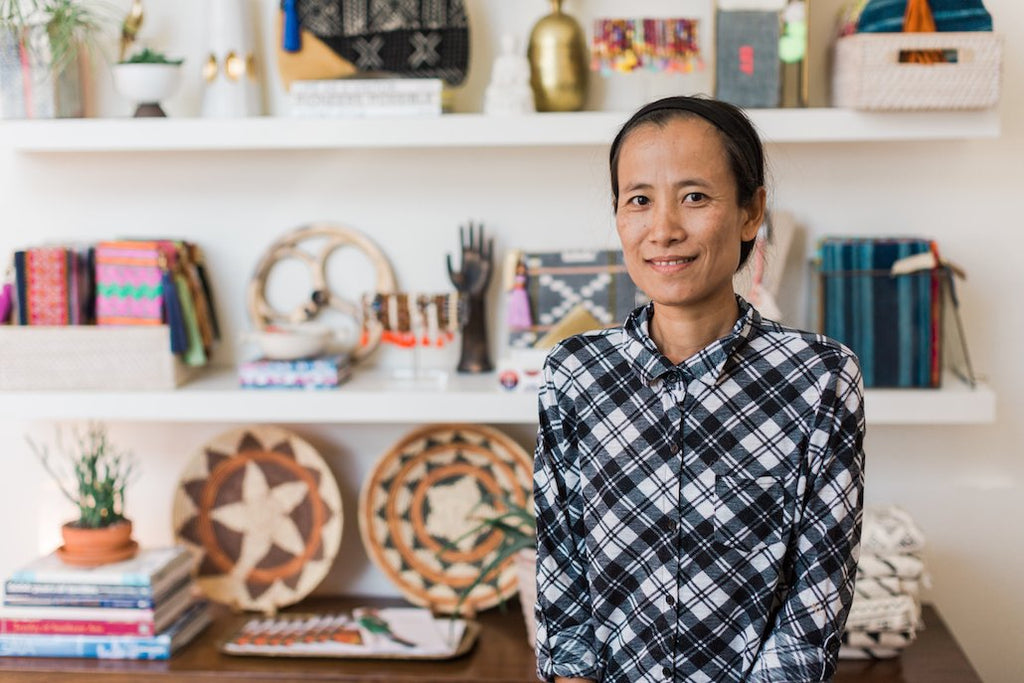
Few of us learn about refugee resettlement in school. In fact, many of us at GAIA were pretty clueless prior to our work with refugees... but once we learned more, we were even more compelled to make them feel welcome here in the United States. While most people who are engaged with the world around us are aware that refugees are continually being resettled in the U.S., many still don’t understand the differences between immigration (legal or not) and refugee resettlement.
Though all refugees are immigrants, not all immigrants are refugees. People immigrate to the United States for many reasons. Some want more opportunities for their children. Some have been displaced by a natural disaster. Others move here for jobs, education, health care, even love. Both immigrants and refugees leave their homelands with hope for better lives, but refugees are specifically trying to escape violence, persecution, and war. Above all, they seek safety for themselves and their families.
Refugees are vetted more thoroughly than any other group seeking to enter the United States. In fact, the hardest way to enter our country is as a refugee!
We know it can be a lot to untangle, especially in these politically charged times, so we’ve answered a few common questions below. For a more detailed explanation of the U.S. refugee vetting and resettlement process, go to rescue.org.
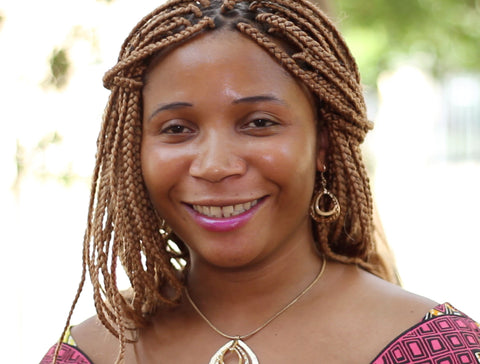
Who decides if someone qualifies as a refugee?
The United Nations. All of the women who are employed at GAIA — and, in fact, all refugees who live in the United States — were were identified as people needing asylum from violence by the United Nations High Commissioner for Refugees (UNHCR), a U.S. embassy, or an approved humanitarian aid organization. They were then carefully screened by the United States government before being allowed to travel to the United States and make homes here.
In the case of our Maria, a non-profit group came to her camp to ask people to apply to live in the United States. Huda’s husband got an inexplicable call from the United Nations asking him if he would like to relocate from Jordan, where he and Huda were living after fleeing Syria. He said yes, but not without his son and daughter-in-law, Bothina, and their children. Those are just two examples of how someone might earn refugee status.
According to the International Rescue Committee (IRC), there are nearly 20 million refugees in the world. Less than 1 percent are considered for resettlement. The United States is one of 28 countries where a refugee can be resettled.
More than 3 million refugees in total have arrived in the United States since 1975, according to data from the State Department’s Refugee Processing Center. In fiscal year 2016, 84,995 refugees were admitted to the United States. The largest numbers came from the Democratic Republic of Congo, Syria, Burma (Myanmar), and Iraq.
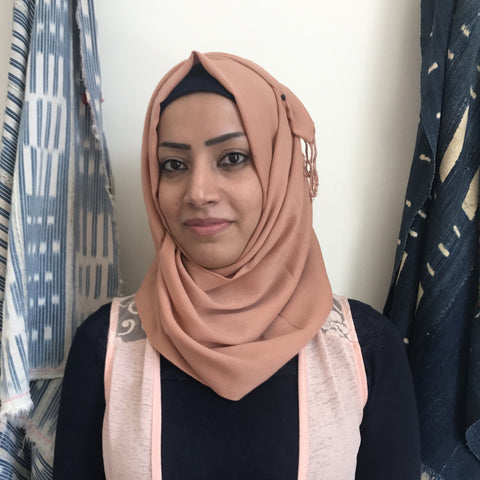
What happens after someone is identified as a refugee?
Refugees aren’t just told to pack their bags and given plane tickets. Resettlement is a lengthy process that begins with an application for security clearance. There are agencies all over the world that help them with this.
Security screenings in the United States involved six government agencies, including the FBI, the Department of Homeland Security, and the Department of Defense. The process takes about 36 months, and involves biographic and biometric checks, medical screenings, forensic document testing, and in-person interviews.
Catherin and her husband, for example, were interviewed three times and underwent a barrage of of medical examinations, including X-rays and blood tests, before being cleared to move the the United States after spending more than 10 years in refugee camps in Thailand.
Syrian refugees go through extra review steps with agencies that have expertise and training in conditions in Syria and the Middle East.
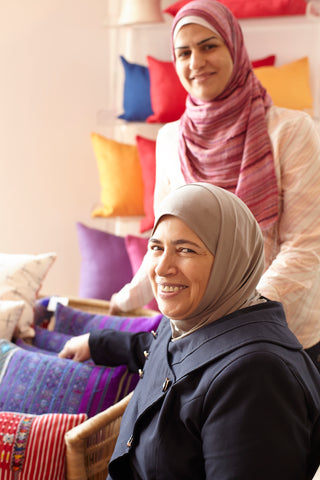
Who decides where refugees will live in the United States?
There are nine national refugee resettlement agencies in the United States. They work with the government to help refugees restart their lives here. As a legal U.S. resident, a refugee can live anywhere he or she chooses, but typically refugees are placed in cities where they have relatives or friends, or where there is an established community that shares their language and culture. In the case of Huda and Bothina, for example, they moved to Dallas because Bothina had an uncle living here.
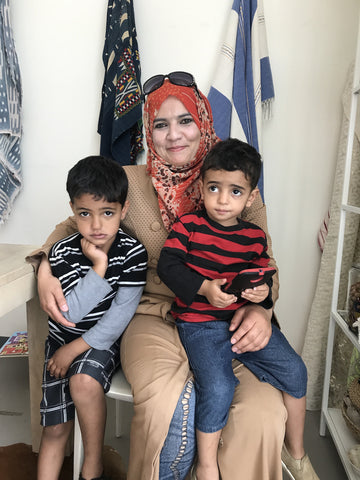
What happens to refugees once they are here?
For the first 90 days, resettlement agencies work with state and local governments and community organizations to help new arrivals settle into their communities. During that time, they undergo additional health screenings, they get assistance enrolling their children in school, they are informed about English classes, and they get help finding jobs.
Even under the best circumstances, resettlement is difficult, but most refugees eventually thrive in the United States — finding full-time work, paying taxes, and becoming active members of their communities.
GAIA has played a significant roll in the lives of our refugee artisans and their families. Steady work that pays a living wage is essential for a stable life. We are so proud of the accomplishments of these strong women.
Catherin and Latifa (and Latifa's husband) have become U.S. citizens. Feza recently purchased a home for her family. Bothina now oversees a whole team of refugee artisans and apprentices. Huda is working hard on her English. Maria is working and mothering three bright, funny children.
And when you purchase handmade accessories from GAIA, you become part of their stories — and the refugee resettlement process.
How cool is that?
Why does GAIA hire refugees? Our founder, Paula, explains.


Comments on this post (0)